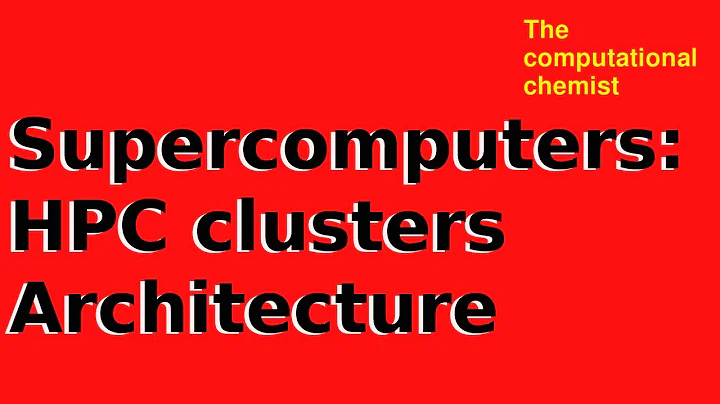openacc vs openmp & mpi differences ?
OpenMP and OpenACC enable directive-based parallel programming.
OpenMP enables parallel programming on shared-memory computing platforms, as for example multi-core CPUs. It is very easy to use, since it is sufficient to tell the compiler some directives (code annotations, or pragmas) on how to extract the parallelism which triggers the synthesis of a parallel version of the input source code.
An example of OpenMP "Hello World" program with pragmas is the following
#include <omp.h>
#include <stdio.h>
#include <stdlib.h>
int main (int argc, char *argv[])
{
int nthreads, tid;
/* Fork a team of threads giving them their own copies of variables */
#pragma omp parallel private(nthreads, tid)
{
/* Obtain thread number */
tid = omp_get_thread_num();
printf("Hello World from thread = %d\n", tid);
/* Only master thread does this */
if (tid == 0)
{
nthreads = omp_get_num_threads();
printf("Number of threads = %d\n", nthreads);
}
} /* All threads join master thread and disband */
}
The source of the above code is OpenMP Exercise from where you will find many other examples. In this "Hello World" example, the master thread will output the number of involved threads, while each thread will print Hello World from thread = xxx.
OpenACC is a collection of compiler directives to specify parts of a C/C++ or Fortran code to be accelerated by an attached accelerator, as a GPU. It follows pretty much the same philosophy of OpenMP and enables creating high-level host+accelerator programs, again without the need of managing the accelerator programming language. For example, OpenACC will let you simply accelerate existing C/C++ codes without needing to learn CUDA (with some performance penalty, of course).
A typical OpenACC code will resemble the following
#pragma acc kernels loop gang(32), vector(16)
for (int j=1; j<n-1; j++)
{
#pragma acc loop gang(16), vector(32)
for (int i=1; i<m-1; i++)
{
Anew[j][i] = 0.25f * (A[j][i+1] + A[j-1][i]);
...
}
}
The above source code is taken from the blog An OpenACC Example (Part 1), where you could find some more useful material to understand the difference between OpenMP and OpenACC.
Other sources are the following
How does the OpenACC API relate to the OpenMP API?.
Shane Cook, CUDA Programming, Morgan Kaufmann (Chapter 10)
Due to its very nature, OpenACC enables hybrid CPU+GPU programming. You can also mix OpenMP and OpenACC directives. For example, in a 4-GPU system, you can create 4 CPU threads to offload computing work to the 4 available GPUs. This is described in the Shane Cook book. However, it should be mentioned that OpenMP 4.0 foresees also directives for offloading work to attached accelerators, see
OpenMP Technical Report 1 on Directives for Attached Accelerators
Related videos on Youtube
Sid5427
Updated on June 07, 2022Comments
-
Sid5427 about 2 years
I was wondering what are the major differences between openacc and openmp. What about MPI, cuda and opencl ? I understand the differences between openmp and mpi, especially the part about shared and distributed memory Do any of them allow for a hybrid gpu-cpu processing setup ?
-
Sid5427 over 10 yearsSo basically at this moment, OpenACC and OpenMP complement each other. I dont know much about OpenACC, but what i was lead to believe was that OpenACC can produce a program with cpu-gpu hybrid processing, but openMP cannot do that (being limited to only work with multicore machines)
-
 Vitality over 10 years@Sid5427 I have extended my answer. You are right that OpenACC enables hybrid CPU+GPU programming. Take also into account that OpenMP 4.0 foresees also directives to attached accelerators, see OpenMP Technical Report 1 on Directives for Attached Accelerators.
Vitality over 10 years@Sid5427 I have extended my answer. You are right that OpenACC enables hybrid CPU+GPU programming. Take also into account that OpenMP 4.0 foresees also directives to attached accelerators, see OpenMP Technical Report 1 on Directives for Attached Accelerators. -
Sid5427 over 10 yearsah yes. thanks for the extension ! i get the hang of it now. am used to OpenMP and was thinking of working with CUDA, and chanced upon OpenACC.
-
Xaphanius over 7 years
-
Sid5427 about 6 yearsthe question is quite old! At the moment I am already heavily involved working with TACC, Pegasus WMS, Cyverse and other supercomputing resources.
-
 Andreas Yankopolus over 4 yearsThere's a big difference between CUDA and OpenCL in that the former compiles device directives to machine code while the latter stores device directives as strings in the resulting binary, only converting them to device-specific machine code at runtime. Among other things, this means you don't get syntax checking of your OpenCL code until you try to run it.
Andreas Yankopolus over 4 yearsThere's a big difference between CUDA and OpenCL in that the former compiles device directives to machine code while the latter stores device directives as strings in the resulting binary, only converting them to device-specific machine code at runtime. Among other things, this means you don't get syntax checking of your OpenCL code until you try to run it. -
Luca Ferraro about 4 yearsThis answer has many errors and horros: OpenMPI is an implementation of the MPI standard, which IS NOT directive based. Don't confuse OpenMP with OpenMPI. MPI has not introduced any specification in its standard to cope with GPUs: the CUDA-aware capabilities are choices of MPI implementations, not related to the MPI standard. I think you should refine your answer and gain deeper insight on the subject.
-
minexew over 3 yearsThis answer is largely useless to most of the world, geographically speaking.










